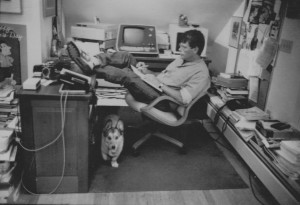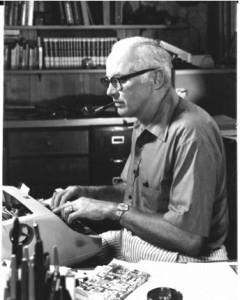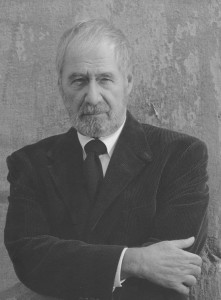James Scott Bell
twitter.com/jamesscottbell
My next print book will be issued under a pseudonym.
Category Archives: Evan Hunter
Write On
It takes courage to write.
Not the kind of courage that a soldier displays going into battle, or a firefighter reveals charging into a burning building. That’s elevated courage, the kind that deserves to be honored in our culture. I’m not getting anywhere near to describing that kind of guts.
I’m talking about the non-lethal world, where it takes a degree of courage to do almost anything worth doing. Because for every enterprise of note there are critics and doubters, scoffers and jeerers, ready to pour acid rain on your parade.
It takes courage to write because obstacles and doubts come in many forms and build big brick walls to try to stop your progress.
Dick Simon (of Simon & Schuster) once said, “All writers are scared to death. Some simply hide it better than others.”
And what a couple of weeks it’s been for writers here on TKZ. We’ve had talks about the e-book tsunami and book price wars. We’ve chatted about branding and tried to figure out what makes readers buy books. We’ve had veteran writers sharing openly about their mistakes and the ramifications thereof.
And we all know the publishing business is in major shakeup mode right now. Trying to predict the future of the industry is sort of like trying to judge the family prospects of guests on Jerry Springer—can any relationship survive?
With all this going on, any writer – new or established – can start to wonder: Is the dream worth it? Do I have any chance of getting published? Staying published? Am I good enough? Am I a fraud? Are the odds too great?
Every true writer faces questions like this. And every true writer finds a way to dig down and write on.
Over a fifteen year writing career (twenty if you toss in the uncompensated beginnings) I’ve faced all the same doubts. Through trial and error I worked out a few ways to keep on keeping on. Maybe one of these will help next time you feel like throwing in the towel.
1. Think in terms of one more page. Don’t ponder the future or replay the past. Don’t stew about the industry or the myriad things you can’t control. Think about the work in front of you. Get that page done, then move on to the next. Establish a quota system and stick to it. The writing itself becomes the best way out of the bog of doubt.
2. Get some visual motivation. When I decided I was going to be a writer no matter what, I went out and bought a black coffee mug with Writer written in gold across it. A little corny, sure, but I didn’t care. I wanted to earn the right to be called a writer, and seeing the cup daily reminded me of the commitment I’d made.
In my office now I have pictures of three writers I admire.
The first is of Stephen King, in his home office, feet up on the desk, looking over a manuscript. He’s dressed casually. His dog is under his legs, looking at the camera.
This is my idea of the good life.
Then there’s a picture of John D. MacDonald, tapping away at his typewriter, pipe in mouth. He was prolific (his biography is entitled Red Hot Typewriter) and a master of story and style.
The photo reminds me to keep producing words.
Finally, I have a picture of Evan Hunter/Ed McBain, from the back of one of his novels, arms folded, staring out as if in challenge. He was even more prolific than MacDonald, writing both literary and genre novels.
If I’m not working hard enough, his glare reminds me to get going again.
3. Go to a bookstore and browse. Look at author photos and dust jackets. See what’s come out lately. If you can, make it an independent bookstore, and buy a book from them. They are folks who love books and are struggling mightily right now. Show a little support, then go back to your keyboard and write.
4. Re-read some favorites. I have a shelf of novels I especially love. Sometimes I’ll take one down at random and start reading. I get inspired again with the pure joy of what writing can be. Then I try to make some magic happen on my own page.
5. Remember what Satchel Paige once said: “Don’t look back. Something may be gaining on you.”
What about you? What are your favorite ways to keep going? Or are you a writer who has no doubts at all?



